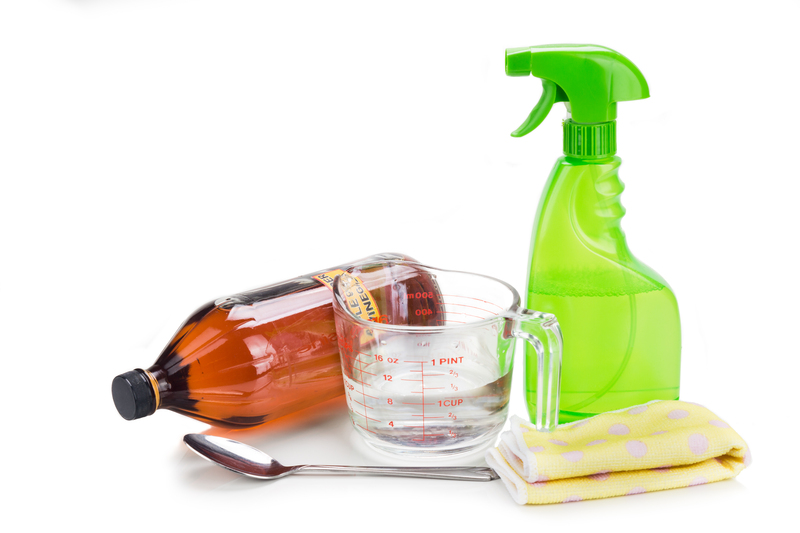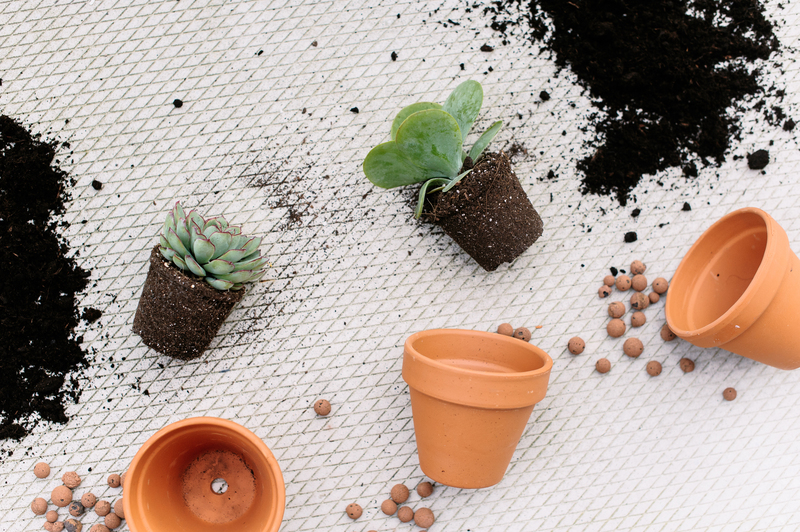Expert-Approved Methods for Cleaning Jewellery
Posted on 07/09/2025
Expert-Approved Methods for Cleaning Jewellery
Jewellery is more than just a beautiful accessory; for many, it holds sentimental value, carries family history, and represents significant investments. Over time, daily wear, exposure to lotions, dust, and even chemicals can dull the brilliance of your treasured pieces. Fortunately, you don't need to be a professional jeweller to restore the sparkle to your adornments. In this comprehensive guide, discover expert-approved jewellery cleaning techniques to safely and effectively care for your favourite rings, necklaces, bracelets, and earrings at home.
Why Proper Jewellery Cleaning Is Essential
Maintaining the shine and luster of your jewellery doesn't just keep them looking their best--regular cleaning can prevent buildup that leads to scratches, tarnish, and even permanent damage. Jewellery care also helps preserve the value of your items and keeps heirlooms in pristine condition for generations to come.
- Protection from Damage: Grit, dirt, and oils can abrade gemstones and precious metals over time.
- Prevention of Tarnish: Silver, gold, and other metals are prone to tarnishing without proper maintenance.
- Health and Hygiene: Earrings and rings can harbor bacteria, making jewellery sanitation an essential step in self-care.

General Guidelines for Cleaning Jewellery at Home
Before delving into specific cleaning methods, keep these expert-approved jewellery care tips in mind:
- Know your materials: Different metals and gemstones require different care. Always identify the materials before cleaning.
- Avoid harsh chemicals: Common household cleaners and certain polishes can damage delicate finishes.
- Use soft tools: Opt for soft-bristled brushes, lint-free cloths, and non-abrasive materials to prevent scratching.
- Handle with care: Delicate chains and prong settings can bend or break under excessive force.
- Test before full cleaning: If you're unsure how a method will affect your piece, test on a small, inconspicuous area first.
Cleaning Gold Jewellery: Safe & Effective Techniques
Gold is relatively soft and can be easily scratched if cleaned improperly. Follow these steps to return your gold pieces to their original brilliance:
Basic Soap-and-Water Method
- Fill a small bowl with warm water and a few drops of mild dish soap.
- Place your gold jewellery in the solution and let it soak for 15-20 minutes.
- Gently scrub with a soft-bristled toothbrush to remove dirt, especially in crevices.
- Rinse thoroughly under clean, lukewarm water.
- Pat dry with a soft, lint-free cloth. Allow to air dry completely before wearing or storing.
Expert Tip: For extra shine, buff your gold pieces with a jewellery polishing cloth. Avoid abrasive materials that could leave micro-scratches.
Avoid These When Cleaning Gold
- Abrasive household cleaners
- Bleach or chlorine-based products
- Toothpaste or baking soda
How to Clean Silver Jewellery Without Causing Tarnish
Silver jewellery is especially prone to tarnishing when exposed to air, moisture, and certain chemicals. Fortunately, professional jewellers recommend these gentle yet effective solutions:
DIY Silver Cleaning Paste
- Mix two parts baking soda with one part water to form a thick paste.
- Rub the paste onto the silver using your fingers or a soft cloth.
- Gently polish, focusing on tarnished areas. Avoid aggressive rubbing as it may scratch the surface.
- Rinse with clean water and dry thoroughly.
Alternative Method: Soak your silver jewellery in a bowl lined with aluminium foil and filled with a hot solution of water, salt, and baking soda for 3-5 minutes, then rinse and dry.
Expert Tips for Preventing Tarnish
- Store silver jewellery in airtight bags or anti-tarnish pouches.
- Avoid exposure to lotions, perfumes, and harsh chemicals.
- Regularly wipe silver pieces with a microfiber cloth to remove oils and sweat.
Gemstone Jewellery: Special Cleaning Considerations
Gemstones like diamonds, rubies, sapphires, emeralds, and opals each have unique properties that require tailored cleaning approaches. Many gemstones are softer or more porous than others, so follow these expert gemstone cleaning methods for optimal results.
General Steps for Cleaning Most Gemstones
- Fill a bowl with lukewarm water and a few drops of mild dishwashing liquid.
- Soak your gemstone jewellery for 10-15 minutes to loosen dirt and debris.
- Gently clean around the stones and settings with a soft brush.
- Rinse with clean, lukewarm water, taking care not to lose any pieces down the drain (plug the sink!).
- Dry with a clean, soft cloth.
Additional Tips for Specific Gemstones
- Diamonds: While diamonds are hard, their settings (especially prongs) can loosen; clean gently with a soft brush.
- Emeralds, opals, and pearls: These are porous and can be damaged by soaking or chemicals; clean only with a damp cloth and never immerse in water.
- Sapphires and rubies: Generally safe for light brushing but avoid ultrasonic cleaners if the stones are treated or fractured.
Special Considerations: Cleaning Pearl and Costume Jewellery
How to Clean Pearls
Pearls are highly delicate and can lose their sheen if exposed to moisture, acids, or harsh chemicals. To clean them:
- Wipe with a soft, damp cloth after each wear to remove body oils and residue.
- For deeper cleaning, dip a clean cloth in a solution of lukewarm water and mild soap, then gently wipe each pearl.
- Allow pearls to air dry on a soft towel--never hang them while wet as this can stretch the silk thread.
Costume Jewellery Cleaning Advice
- Use a dry, soft cloth to avoid water damage, especially on glued stones.
- Avoid soaking or using chemical cleaners.
- Inspect pieces regularly for loose stones or tarnish, and clean after each use for longevity.
Professional Jewellery Cleaning: When to Call in the Experts
While at-home jewellery cleaning is suitable for routine upkeep, there are times when only a professional jeweller should handle your cherished items:
- Inherited or antique jewellery that may have fragile settings or valuable stones.
- Severe tarnish, scratches, or loose settings requiring professional polishing and repairs.
- Appraisal and inspection for insurance or before major cleaning at home.
Tip: Most experts recommend a professional cleaning and inspection at least once a year.
Modern Jewellery Cleaning Tools and Products
If you're seeking convenience or a more thorough clean, consider these popular tools and products approved by jewellery experts:
- Ultrasonic cleaners: Vibrate dirt and debris loose. Only use for diamonds, gold, or platinum without porous gemstones or loose settings.
- Jewellery steam cleaners: Use hot steam to reach difficult crevices, but never use with soft or porous stones.
- Professional cleaning cloths: Designed to remove tarnish and polish without scratching.
- Non-toxic jewellery cleaning solutions: Available for gold, silver, and gemstone-specific care.
Always read instructions and warnings carefully before using any device or product with your jewellery.
Expert Advice for Daily Jewellery Maintenance
In addition to periodic deep cleaning, simple habits can keep your jewellery radiant and damage-free.
- Remove jewellery before: Bathing, swimming, gardening, cleaning, or working with your hands.
- Apply lotions, perfumes, and hairsprays before putting on jewellery to prevent residue buildup.
- Store pieces separately in soft pouches or lined boxes to avoid scratches.
- Wipe items down regularly after wearing to prevent oil and dirt accumulation.
Common Jewellery Cleaning Mistakes to Avoid
Avoiding these common mistakes is just as important as applying the right cleaning technique:
- Using abrasive cleaners such as baking soda on soft metals like gold or delicate gemstones.
- Soaking glued costume jewellery in water, which can weaken adhesives and cause stones to fall out.
- Overusing ultrasonic cleaners on fragile, antique, or gemstone jewellery.
- Forgetting to thoroughly dry jewellery before storage, which can cause tarnish or corrosion.

Frequently Asked Questions About Jewellery Cleaning
How often should I clean my jewellery?
Answer: For items worn daily, a gentle cleaning every two weeks is ideal. Special pieces or those rarely worn can be cleaned every few months.
Can I use toothpaste to clean jewellery?
Answer: No, experts warn that toothpaste is abrasive and can scratch precious metals and gemstones. Stick to mild soaps and soft brushes.
Is vinegar safe for cleaning jewellery?
Answer: Vinegar is acidic and can damage stones and metals over time. It's not recommended unless specifically advised for certain pieces.
Conclusion: Sparkle Safely With These Proven Methods
Caring for your cherished adornments isn't just about aesthetics--it's about preserving beauty, value, and memories. By following these expert-approved jewellery cleaning methods, you can confidently clean your jewellery at home, maintain its radiance, and ensure it lasts for generations. For valuable or delicate pieces, remember that professional jewellers are always there to offer advice, cleaning, and maintenance.
Let your jewellery shine as brightly as your memories--practice safe, effective cleaning and enjoy every moment with your sparkling treasures.




